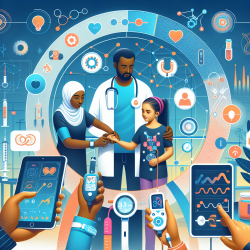Revolutionizing Education: Genomics in the Classroom
In today's rapidly evolving educational landscape, integrating modern scientific concepts into the classroom is essential for fostering a deeper understanding of complex health issues. The research article titled "Health in Our Hands: diabetes and substance use education through a new genomic framework for schools and communities" presents an innovative approach to education that combines genomics with practical learning experiences.
The Genomic Framework: A New Era in Education
The study conducted from May 2014 through June 2019 involved 1271 students from underserved communities in Flint and Detroit, Michigan. It evaluated the effectiveness of a genomics curriculum aligned with Next Generation Science Standards (NGSS) and focused on two prevalent health issues: type 2 diabetes and substance use disorder (SUD).
By employing a project-based learning (PBL) approach, the curriculum aimed to enhance students' understanding of gene-environment interactions and their impact on health. The outcomes were promising, with significant gains in students' perceived learning about health and its relevance to everyday life.
Key Findings: Empowering Students and Communities
The curriculum's impact was measured through classroom surveys, presentation event questionnaires, and interviews. Notable findings include:
- A 12% increase in students' perceived learning about genes and the environment.
- 73.4% of participants reported increased awareness of educational and career choices in science.
- Moderate gains in students sharing their learning with friends and family.
These results highlight the curriculum's success in making complex scientific concepts accessible and relevant to students' lives, thereby fostering a culture of learning and inquiry within the community.
Implementing the Framework: Practical Steps for Educators
For practitioners looking to enhance their teaching methods, the following strategies can be drawn from the study:
- Adopt a Project-Based Learning Approach: Engage students with real-world problems that require critical thinking and collaboration.
- Integrate Genomics into the Curriculum: Use genomics as a lens to explore health issues, emphasizing the interaction between genetics and the environment.
- Foster Community Involvement: Encourage students to share their learning with family and community members, creating a broader impact.
These steps not only enhance scientific literacy but also prepare students for future educational and career opportunities in STEM fields.
Encouraging Further Research
The study underscores the importance of continuous research and adaptation in educational practices. Educators are encouraged to explore further research on genomics and its applications in the classroom to stay abreast of emerging trends and methodologies.
To read the original research paper, please follow this link: Health in Our Hands: diabetes and substance use education through a new genomic framework for schools and communities.










